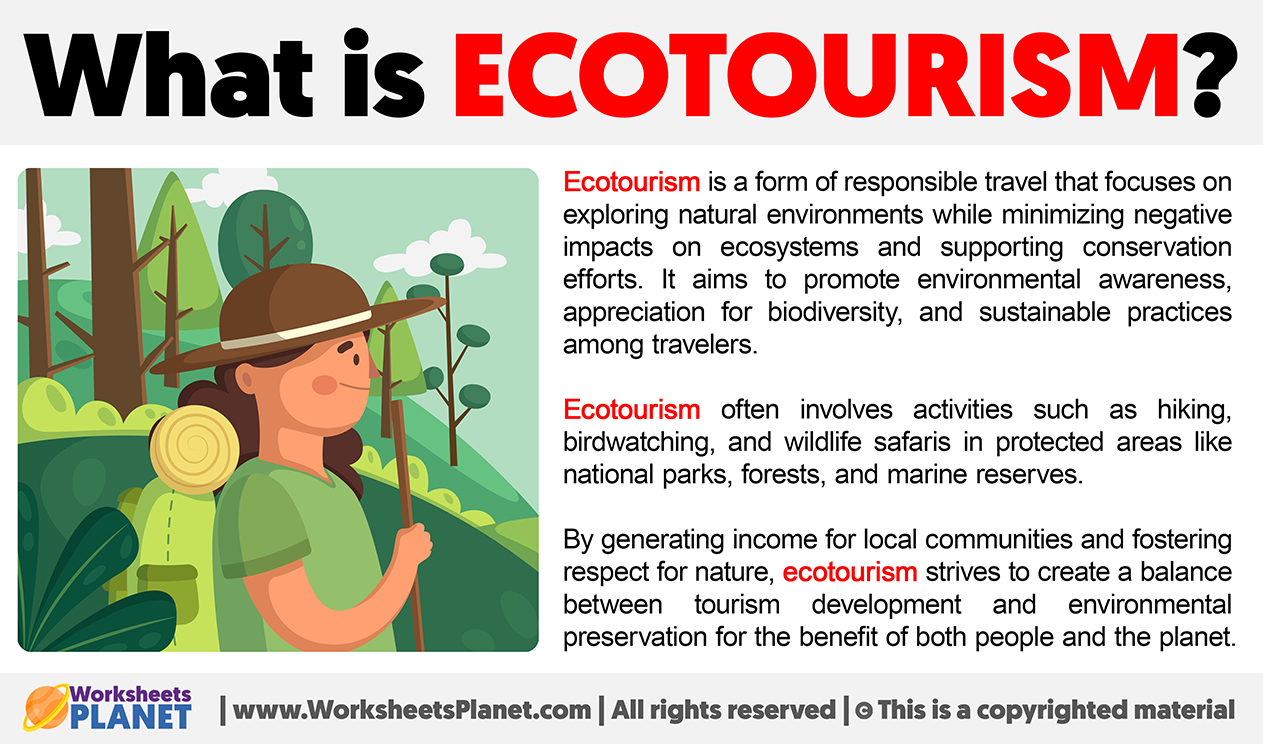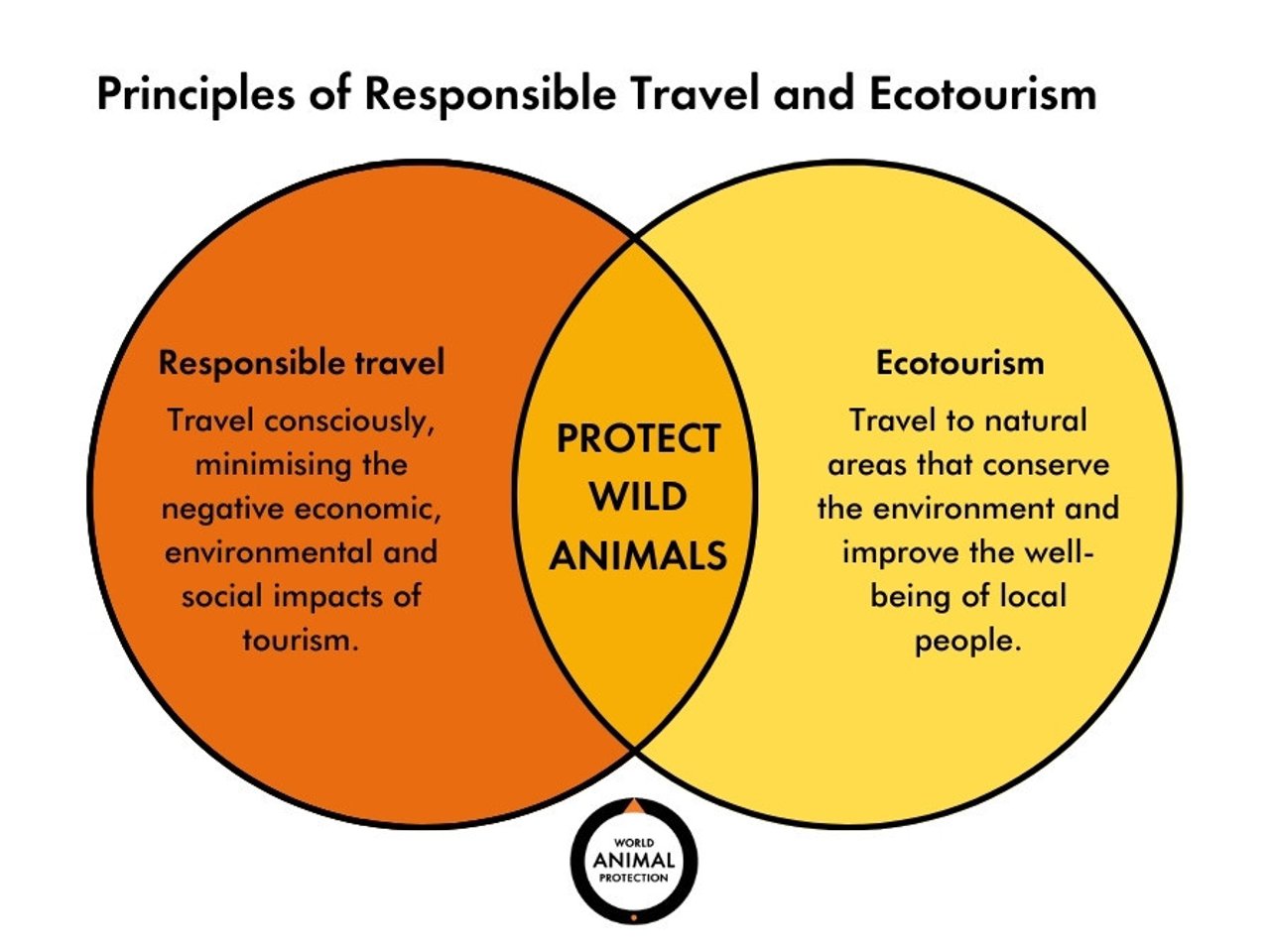Defining Natural tourism: A Journey Through Evolving Concepts
Natural tourism, a term often used interchangeably with ecotourism, nature-based tourism, and sustainable tourism, encompasses a broad spectrum of travel experiences. However, pinpointing a precise, universally accepted definition remains a complex undertaking. This complexity stems from the evolving understanding of the relationship between humans and the natural world, as well as the diverse motivations and impacts associated with travel. This article delves into the nuances of defining natural tourism, exploring its core principles, historical context, and the challenges of achieving true sustainability.
The Foundational Principles of Natural Tourism
At its heart, natural tourism emphasizes the appreciation and preservation of natural environments. It goes beyond simply visiting scenic locations, aiming to foster a deeper understanding and respect for ecosystems, biodiversity, and cultural connections to nature. Several core principles underpin this concept:
Experiencing Undisturbed Natural Areas

Natural tourism prioritizes travel to locations where natural ecosystems remain relatively intact. This includes national parks, wildlife reserves, remote wilderness areas, and other environments showcasing biodiversity and ecological processes. The focus is on observing and appreciating these environments in their natural state, minimizing human interference.
Promoting Conservation and Sustainability
A key aspect of natural tourism is its commitment to conservation. This involves supporting efforts to protect natural habitats, wildlife populations, and cultural heritage. Sustainable practices are crucial, including minimizing environmental impact, reducing waste, and conserving resources. This can be achieved through responsible travel behaviors, supporting local conservation initiatives, and choosing environmentally friendly accommodations and tour operators.
Educating and Interpreting Natural and Cultural Heritage
Natural tourism strives to provide educational opportunities for travelers. This includes learning about the ecology, geology, flora, fauna, and cultural significance of the visited areas. Guided tours, interpretive programs, and educational materials play a vital role in enhancing visitor understanding and appreciation. This aspect differentiates natural tourism from mere sightseeing.
Benefiting Local Communities
Genuine natural tourism aims to create positive economic and social impacts for local communities. This includes generating income opportunities through tourism-related businesses, supporting local infrastructure, and promoting cultural exchange. It also means ensuring that local communities have a say in tourism development and management, empowering them to protect their natural and cultural resources.

The Evolution of the Term “Natural Tourism”
The concept of natural tourism has evolved significantly over time, reflecting changing societal attitudes towards the environment.
Early Explorations and Romanticism
Early forms of nature-based travel were often driven by scientific curiosity and the romantic appreciation of nature. Explorers, naturalists, and artists ventured into remote areas, documenting their experiences and fostering a growing awareness of the natural world. However, these early expeditions often lacked a focus on conservation or community benefits.
The Rise of Ecotourism
The term “ecotourism” gained prominence in the 1980s, marking a shift towards more responsible and sustainable forms of nature-based travel. Ecotourism emphasizes minimizing environmental impact, contributing to conservation, and benefiting local communities. This concept broadened the scope of natural tourism, incorporating ethical considerations and a focus on sustainability.
Expanding Definitions and Related Concepts
As awareness of environmental issues grew, related concepts such as sustainable tourism, nature-based tourism, and geotourism emerged. These terms often overlap with natural tourism but may emphasize different aspects. Sustainable tourism focuses on broader environmental, social, and economic sustainability, while nature-based tourism encompasses a wider range of outdoor activities. Geotourism highlights the geological features and cultural landscapes of a region.
Challenges in Defining and Implementing Natural Tourism
Despite its noble intentions, defining and implementing natural tourism presents several challenges.
Subjectivity and Interpretation
The definition of “natural” can be subjective, varying depending on cultural perspectives and individual values. What constitutes an undisturbed natural area can also be debated, as human influence is pervasive in many environments. This subjectivity can lead to inconsistencies in the application of natural tourism principles.
Greenwashing and Misrepresentation
The growing popularity of natural tourism has led to concerns about greenwashing, where businesses or destinations promote themselves as environmentally friendly without genuinely adhering to sustainable practices. This misrepresentation can undermine the credibility of natural tourism and mislead consumers.
Balancing Conservation and Development
Achieving a balance between conservation and development is a crucial challenge. Tourism can provide economic benefits, but it can also lead to environmental degradation and cultural disruption. Finding ways to manage tourism sustainably, ensuring that it contributes to conservation and community well-being, is essential.
Measuring and Monitoring Impacts
Accurately measuring and monitoring the impacts of natural tourism is essential for ensuring its sustainability. This includes assessing environmental, social, and economic impacts, as well as evaluating the effectiveness of conservation efforts. However, quantifying these impacts can be complex and requires robust monitoring systems.
The Future of Natural Tourism: Embracing Responsibility and Innovation
The future of natural tourism depends on embracing responsibility and innovation. This involves:
Strengthening Certification and Accreditation
Developing and implementing robust certification and accreditation programs can help ensure that tourism businesses and destinations adhere to sustainable practices. This can provide consumers with reliable information and help combat greenwashing.
Promoting Responsible Travel Behaviors
Educating travelers about responsible travel behaviors is crucial. This includes encouraging them to minimize their environmental impact, respect local cultures, and support sustainable businesses.
Investing in Community-Based Tourism
Supporting community-based tourism initiatives can empower local communities to manage their natural resources and benefit from tourism. This can lead to more equitable and sustainable tourism development.
Utilizing Technology for Sustainability
Technology can play a vital role in promoting sustainable tourism. This includes using renewable energy, implementing waste reduction strategies, and developing innovative solutions for monitoring and managing environmental impacts.
Fostering Collaboration and Partnerships
Collaboration between governments, businesses, NGOs, and local communities is essential for achieving sustainable natural tourism. This includes sharing best practices, developing joint initiatives, and advocating for responsible tourism policies.
Conclusion: A Continuous Journey Towards Sustainability
Defining natural tourism is an ongoing process, reflecting the evolving relationship between humans and the natural world. While challenges remain, the core principles of conservation, education, and community benefit provide a strong foundation for responsible travel. By embracing these principles and fostering a culture of sustainability, we can ensure that natural tourism contributes to the preservation of our planet’s precious ecosystems and the well-being of its inhabitants. Natural tourism is not just a form of travel; it’s a commitment to a more sustainable and harmonious future.


